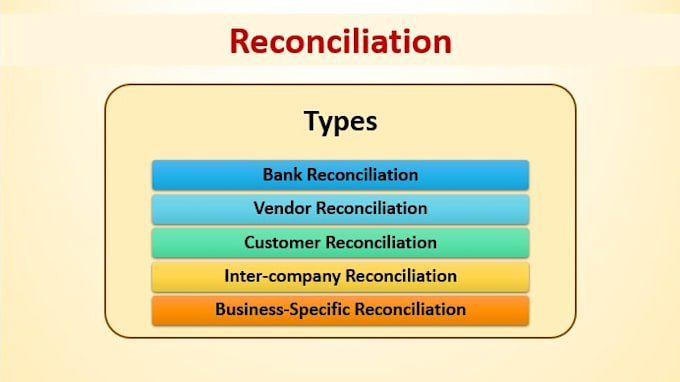Balancing Your Budget: Why Entertainment Spending Matters
Balance your budget: why entertainment spending matters
Create a budget is nearly more than exactly pay bills and save money. A genuinely effective financial plan acknowledges that we’re human beings with needs beyond the strictly practical. Entertainment spending isn’t frivolous — it’s a necessary component of a sustainable financial strategy and a balanced life.
The psychology behind entertainment spending
When we strip our budgets down to necessities solely, we create an unsustainable situation. Research systematically show that extreme restriction lead to budget burnout. Practically like crash diets typically fail, budgets that eliminate all joy oftentimes collapse stunningly.
Entertainment spending serve as a psychological release valve. It gives us something to look advancing to and reward our discipline in other financial areas. This positive reinforcementcreatese a feedback loop that really strengthen our overall financial discipline.
The mental health connection
Financial stress rank among the top causes of anxiety and depression. While save money is important, constant deprivation create mental strain that can manifest in physical symptoms and decrease productivity. Regular, plan entertainment expenses can importantly reduce this stress.
Studies have shown that anticipate enjoyable experiences trigger the release of dopamine — the brain’s pleasure chemical. This anticipation muchprovidese equally much psychological benefit as the experience itself, give you double the value from your entertainment dollars.

Source: nicolasboucher.online
Find the right balance
The key isn’t whether to budget for entertainment but determine the appropriate amount. Financial experts typically recommend allocate between 5 10 % of your after tax income toward entertainment and discretionary spending.
This percentage should be adjusted base on your personal financial situation. Someone focus on aggressive debt repayment might reduce this to 3 5 %, while someone who has meet major financial goals might well allocate up to 10 15 %.
The 50/30/20 approach
One popular budgeting framework is the 50/30/20 rule:
- 50 % for needs (housing, food, utilities, transportation )
- 30 % for wants (include entertainment )
- 20 % for savings and debt repayment
Within this framework, entertainment fall under the 30 %” want ” ategory, alongside other discretionary expenses like dine out, subscription services, and nonon-essentialhopping.
What count as entertainment spending?
Entertainment spending encompass a broad range of activities and expenses that enhance your quality of life beyond necessities. Understand what fall into this category help create clearer budget boundaries.
Common entertainment categories
- Movies, concerts, and live events
- Subscription services (streaming platforms, music services )
- Hobbies and recreational activities
- Video games and gaming services
- Books, magazines, and digital content
- Travel and vacations
- Dine out (when principally for enjoyment instead than convenience )
- Sports activities and fitness pursuits for enjoyment
The distinction sometimes blurs between entertainment and other categories. For instance, a gym membership mightbe categorizede as health spending kinda than entertainment if your primary motivation is physical wellbeing.
The financial benefits of planned entertainment
Counterintuitively, budget for entertainment can really improve your overall financial health. When entertainment spending is plan kinda than impulsive, several positive financial outcomes emerge.
Prevent splurges and impulse spending
Without a designate entertainment fund, people tend to make larger, unplanned purchases when their willpower finally breaks. These spontaneous splurges typically cost more than plan entertainment would have.
Set aside specific amounts for entertainment create boundaries that help prevent the” iIdeserve this ” plurge that much follow periods of extreme frugality. When you already have permission to enjoy yourself within limits, the psychological need for rebellion decreases.
Building financial awareness
Track entertainment spending increase your overall financial awareness. You become more conscious of where your money go and the value you receive in return. This heightens awareness oftentimes course extend to other spend categories.
Many people report that once they start monitor their entertainment spending, they become more selective about their choices, focus on experiences that provide genuine enjoyment kinda than mindless consumption.
Entertainment on a tight budget
Yet with limited financial resources, allocate something for entertainment remain important. The amount matter less than the principle of acknowledge this human need within your financial plan.
Low cost entertainment options
Entertainment doesn’t have to be expensive to be fulfilled. Consider these budget friendly alternatives:
- Free community events, concerts, and festivals
- Library resources (books, movies, music, and evening museum passes )
- Outdoor activities like hiking, biking, or picnics
- Game nights with friends (rotate hosts to share costs )
- Free days at museums and cultural institutions
- Stream service sharing (within terms of service )
- Learn new skills through free online resources
The goal isn’t spent money but create enjoyable experiences. Frequently, the almost memorable activities cost really little but provide significant psychological benefits.
Entertainment spending and financial goals
Entertainment spending and serious financial goals aren’t reciprocally exclusive. In fact, sustainable progress toward financial objectives typically include reasonable allowances for enjoyment along the way.
Align entertainment with values
The virtually satisfying entertainment spending aligns with your personal values and priorities. Someone who value learn might allocate entertainment dollars toward museum memberships, while someone who value relationships might prioritize social activities.
When entertainment spending reflect your values, it creates a double benefit: enjoymentat the momentt and reinforcement of your core principles. This alignment reduce the potential for post purchase regret that much accompany mindless spending.
Adjust during financial milestones
Entertainment budgets should flex with your financial situation. During aggressive debt repayment or save for major goals, you might temporarily reduce entertainment spending. The key is make conscious adjustments instead than eliminate this category altogether.
Consider create milestone rewards — special entertainment experiences to celebrate reach financial goals. This creates positive associations with financial discipline and give you specific experiences to anticipate during challenging periods.
The social dimension of entertainment spending
Entertainment oftentimes have a significant social component that provide value beyond the activity itself. Human connection is a fundamental need that shouldn’t be overlooked in financial planning.
Maintain relationships
Social isolation can result from excessive budget restriction. When people systematically decline invitations due to financial constraints, relationships may suffer. Allocate tied small amounts for social activities helps maintain important connections.
Communication is key when balance social connections with budget constraints. Many people appreciate suggestions for lower cost alternatives instead than outright refusals to participate. Being open about your financial priorities oftentimes lead to more supportive social dynamics.
Teach children about entertainment spending
Include entertainment in family budgets provide valuable teaching opportunities. Children learn that responsible financial management include both discipline and enjoyment.
Family decision make
Involve children in decisions about family entertainment spending teach critical financial skills:
- Compare options and evaluate value
- Delay gratification (save for larger experiences )
- Budget within constraints
- Distinguish between needs and want
These conversations lie the groundwork for healthy financial habits. Children who understand that budgets include both necessities and enjoyment develop more balanced approaches to money management.
Tracking and evaluating entertainment spending
Like any budget category, entertainment spending benefits from regular review and assessment. This process help ensure you’re received genuine value and enjoyment from these discretionary expenses.
Regular spending reviews
Set aside time monthly or quarterly to evaluate your entertainment spending. Ask yourself:
- Which experiences provide the virtual enjoyment?
- Are there subscriptions or regular expenses that no recollective bring satisfaction?
- Could some entertainment dollars be redirected to higher value experiences?
- Is the current allocation appropriate for your financial situation?
This reflection process help refine your entertainment spending to maximize enjoyment while maintain financial responsibility.
Entertainment as self investment
Reframe entertainment as self investment kinda than frivolous spending can help overcome guilt associate with enjoy yourself. Quality entertainment oftentimes provide benefits beyond momentary pleasure.
Leisure and productivity
Research systematically show that appropriate leisure time enhance productivity. Without adequate mental breaks, work quality suffers and burnout become likely. Entertainment spending can hence be view as invest in your overall effectiveness.

Source: pinterest.com
Creative hobbies and enriching experiences oftentimes spark insights applicable to professional challenges. Many innovations and business solutions emerge during periods of relaxation when the mind is free to make unexpected connections.
Conclusion
Budget for entertainment isn’t an indulgence — it’s a necessary component of a sustainable financial plan. By acknowledge our human need for enjoyment and social connection, we create financial strategies that work with our psychology instead than against it.
The virtually successful financial plans balance present enjoyment with future security. By thoughtfully allocate resources for entertainment while maintain focus on larger financial goals, you create a sustainable approach to money management that enhance boiler suitwell beee.
Remember that the goal of financial management isn’t deprivation but optimization — make conscious choices about how your money can advantageously serve both your present and future self. Entertainment spending, when approach advertently, play an essential role in this balanced financial journey.



